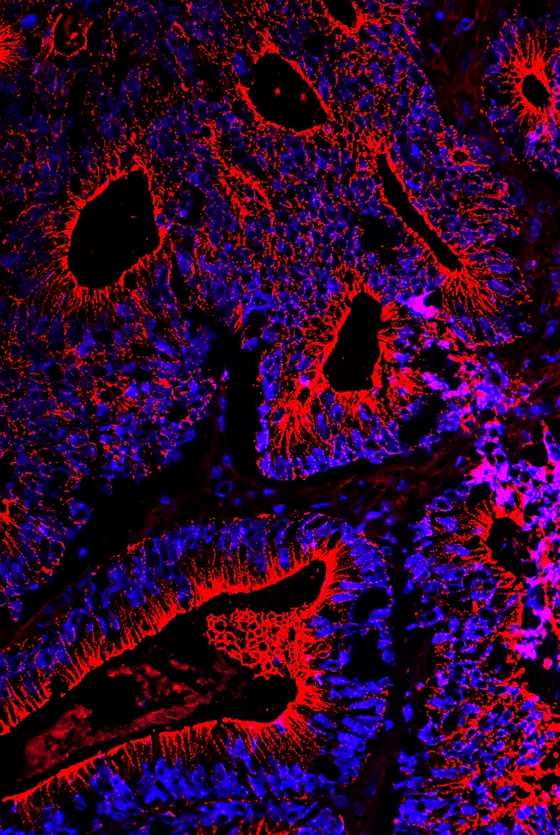Colorectal cancer is one of the most common types of cancer in Western industrial nations. Each year, over 25,000 persons succumb to it in Germany alone. An examination called colonoscopy can prevent this type of cancer. Any precancerous stages that may be detected can be removed during the same examination. Colonoscopy is used as a diagnostic method, for example, to clarify medical suspicions. In addition, as part of the national statutory cancer screening program in Germany, all insured persons aged 55 or older are offered a screening colonoscopy examination. Recent studies have shown that the number of new cases in the age group of 55 years or older has declined since the screening program was introduced in 2002. Scientists in the team led by Hermann Brenner from the German Cancer Research Center (Deutsches Krebsforschungszentrum, DKFZ) in Heidelberg have now determined the impact of colonoscopy on death rates from colorectal cancer.
For their calculations, the epidemiologists used data for the period from 2008 to 2011 for Germany as well as the U.S.A., where screening colonoscopy has been offered since 1998. “In both countries, high-quality programs for colonoscopy examinations have been made available," said Brenner. “However, the potential of this examination in cancer screening is still far from being fully exploited." In Germany, 55 percent of persons in the age group between 55 and 79 years had undergone a colonoscopy exam for diagnostic or screening purposes in the preceding 10 years. In the U.S.A., this rate was up to 60 percent. “Without colonoscopy, about 30 percent more people in this age group would have died from colorectal cancer," explained Brenner. “If additionally all persons of this age had made use of a colonoscopy screening examination, the number of deaths from colorectal cancer would have been approximately 37 percent lower." The scientists obtained similar results for the U.S.A. (38.2% for 2008/2009 and 33.6% for 2010/2011).
The risk of dying from colorectal cancer rises continuously until very old age. Therefore, in the group of those aged 70-79 years, the numbers of potentially preventable deaths and of cases that were in fact prevented by colonoscopy are highest. By contrast, the number of colorectal cancer cases was significantly lower in the group of those aged between 55 and 59 years, but colonoscopy could prevent only about one in four deaths because fewer people in this age group had undergone an examination (46 percent).
In prior studies, Hermann Brenner and his team were already able to show that screening colonoscopy has a very good protective effect in Germany due to high quality standards. Since April 1, 2017, members of the statutory health insurance are also offered a novel immunological test for occult blood in the stool. It replaces the conventional chemical test and is another considerable improvement in the screening measures offered. “If people made consistent use of the screening programs offered, it would be possible to prevent tens of thousands of deaths from colorectal cancer in the next few years," said Brenner. He added that the best way to achieve this would be to establish an organized colorectal cancer screening program with individual invitations to eligible persons. Although there have been demands for nationwide introduction of a program of this kind in the National Cancer Plan and in the law on early cancer detection and cancer registries, this has not been put into effect yet.
Chen C, Stock C, Hoffmeister M, Brenner H, Public health impact of colonoscopy use on colorectal cancer mortality in Germany and the United States, Gastrointestinal Endoscopy (2017), DOI: 10.1016/j.gie.2017.04.005



